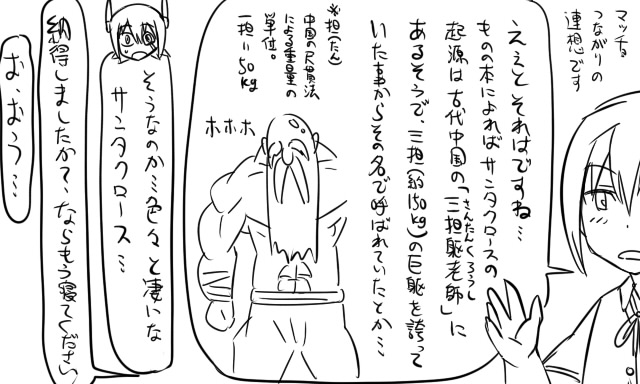
Artist's commentary
マッチョな提督と艦娘たち(小話10)
Merry Christmas!
みんなの所にはサンタクロースはやってきたかな?
僕の所には那珂ちゃんサンタがやってきたよ。しかも48人(真顔)
※後遺症のないあんぜんな薬物です。
※このシリーズの第一話はこちらです →pixiv #39965839 »

Merry Christmas!
みんなの所にはサンタクロースはやってきたかな?
僕の所には那珂ちゃんサンタがやってきたよ。しかも48人(真顔)
※後遺症のないあんぜんな薬物です。
※このシリーズの第一話はこちらです →pixiv #39965839 »
